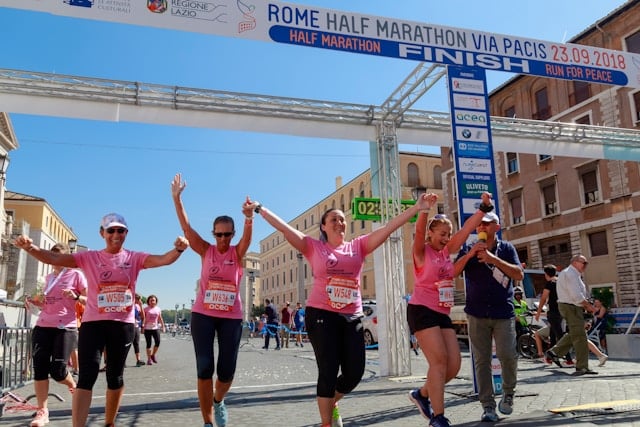The world of sports nutrition is ever-evolving, and as we delve deeper into the field of athletic performance, we cannot ignore the significant role of probiotics. Probiotics, specifically the strains of Lactobacillus, have found prominence in the health regime of athletes. Not just for gut health, but also for their potential role in boosting the immune system and enhancing endurance during strenuous exercise. What was once considered the domain of health enthusiasts and medical scholars, today has widespread acceptance and has caught the attention of the common man, thanks to accessible platforms like Google Scholar, PubMed and Crossref.
But how effective are probiotics in boosting immunity in athletes, particularly marathon runners? To find this, let’s delve into the research articles, studies and reviews available on popular academic search engines.
Also to discover : How to Develop a Periodized Training Plan for Competitive Powerlifters?
The Probiotic-Immune Connection in Athletes
The undeniable connection between probiotics and the immune system has been the subject of several studies. Exercise, particularly intensive endurance activities like marathon running, can have profound effects on an athlete’s immune system. According to research articles available on PubMed, strenuous exercise can make athletes more susceptible to upper respiratory tract infections (URTI).
So where do probiotics fit in? Probiotic supplementation, specifically the Lactobacillus strains, can help to counter these effects. They aid in maintaining a healthy balance of bacteria in the gut, which can boost immunity and improve overall health. Remember that a large portion of the body’s immune cells reside in the gut, emphasizing the importance of maintaining a healthy gut microbiome for optimal immune function.
Also to see : How Can High-Intensity Tactical Training (HITT) Benefit Military Personnel?
Exploring the Research: Probiotics and Immunity in Athletes
Several studies available on Google Scholar and Crossref have explored the effects of probiotics on athletes’ health and performance. A PubMed search reveals numerous articles investigating the correlation between probiotic supplementation and immune function in athletes. The majority of these studies have shown positive results, indicating that probiotics can indeed play a significant role in enhancing immune function in marathon runners.
In one study, marathon runners were given a Lactobacillus probiotic supplement for four weeks. The results indicated a significant reduction in the duration and severity of URTI symptoms compared to a placebo group. Additionally, the probiotic group also showed improved overall endurance performance.
Probiotics: Aiding Performance and Endurance in Marathon Runners
The endurance of marathon runners is an area of interest when it comes to probiotic supplementation. Intensive exercise can create an imbalance in the gut microbiome and negatively impact performance. Google Scholar and Crossref are replete with articles and studies discussing the role of probiotics in improving the endurance of athletes.
A study available on PubMed showed that a specific Lactobacillus strain administered to cyclists led to a 17% increase in the time to fatigue, suggesting that probiotics can significantly enhance endurance in athletes.
Understanding the Limitations and Future Avenues of Research
While there’s a significant body of research indicating the positive effects of probiotics on immune function and endurance in athletes, it’s important to note that the field is still evolving. More research is required to fully understand the mechanisms through which probiotics interact with the immune system and exercise performance.
Many studies rely on self-reported measures of URTI, which can introduce a level of subjectivity. Moreover, the effects of probiotics can vary between individuals, influenced by factors like diet, age, and overall health. Future research needs to focus on these variables to provide more definitive evidence on the role of probiotics in enhancing immune function in marathon runners.
In conclusion, probiotics, particularly the Lactobacillus strains, have displayed promising potential in enhancing immune function and improving endurance in marathon runners. However, athletes and trainers should approach probiotic supplementation with an understanding of the current research limitations. It is crucial to remember that while probiotics offer several health benefits, they are not a stand-alone solution for improved athletic performance. A well-balanced diet, proper training, and adequate rest are equally important.
Role of Probiotics in Reducing Oxidative Stress in Marathon Runners
Oxidative stress is a major concern for endurance athletes like marathon runners. This physiological condition can damage cells, proteins, and DNA, and it’s often triggered by strenuous exercise. The connection between probiotics and reducing oxidative stress in athletes is relatively less explored but holds significant potential.
Various articles on Google Scholar and Crossref have started to recognize the role of probiotics in mitigating oxidative stress. A recent double-blind study, available on PubMed, showed that athletes who took Lactobacillus probiotic supplements showed a significant decrease in oxidative stress markers compared to a placebo group. This suggests that probiotics might protect athletes from exercise-induced oxidative damage.
Moreover, a systematic review in the PMC free article collection suggests that probiotics could enhance the antioxidant capacity of athletes. The study indicates that probiotics can potentially increase the production of antioxidant enzymes in the body, which can neutralize free radicals and reduce oxidative stress.
Although promising, the research in this area is still in its nascent stages. Further research and larger trials are required to validate these findings and to explore how probiotics influence oxidative stress markers in endurance athletes across different sports, age groups, and health statuses.
The Impact of Probiotics on Gut Barrier Function in Marathon Runners
Physical exertion can trigger changes in gut health, including a disruption of the gut barrier function. For marathon runners, maintaining optimal gut health is crucial as gut disturbances can lead to decreased performance and recovery.
Research articles available on Google Scholar, Crossref, and PubMed suggest that probiotics might help maintain a healthy gut barrier function in athletes. In a double-blind study, it was observed that a probiotic group of athletes showed less gut permeability compared to a placebo group post-exercise. This effect was linked to the probiotics’ ability to enhance the tight junction integrity in the gut.
Another research article on PubMed discussed the benefits of Lactobacillus supplementation in preserving gut barrier integrity during strenuous exercise. The study found that marathon runners taking probiotic supplements experienced fewer gut-related issues and better recovery.
While these findings offer exciting insights into the potential effects of probiotics on gut health in athletes, more extensive research is needed to understand the exact mechanisms and the best protocols for probiotic supplementation.
Conclusion
In summary, probiotics play a promising role in several aspects of marathon running, from enhancing immune function and endurance, reducing oxidative stress, to preserving gut barrier function. The pool of evidence from Google Scholar, Crossref, and PubMed offers valuable insights into the potential benefits of probiotic supplementation for marathon runners.
However, probiotic effects can vary among individuals. Multiple factors such as diet, age, and overall health can influence the effectiveness of probiotic supplementation. Therefore, while considering probiotics, athletes should adopt a holistic approach that includes a balanced diet, adequate hydration, and proper rest.
The future of probiotics in sports performance looks promising, but it is still an evolving field. Further research is needed to comprehensively understand how probiotics interact with different aspects of athletic performance and health. For now, the takeaway message for athletes and trainers is that probiotics, especially Lactobacillus strains, have the potential to be an effective part of a marathon runner’s nutrition strategy, but shouldn’t be relied upon as a standalone solution.






